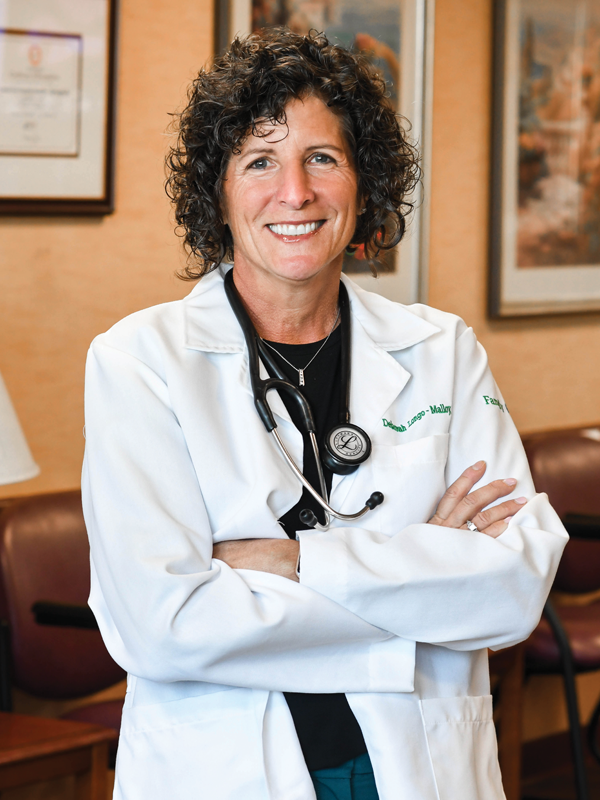How to Find a Healthier You

What is Lifestyle Medicine?
Lifestyle Medicine is a more holistic and preventive approach than traditional family medicine. To me, it means developing an in-depth relationship with my patients built around education. I strive to help them understand there are lots of things they can do in their everyday lives, from sweeping changes to little tweaks, to support their health. Our conversations focus on six pillars: movement, nutrition, sleep, stress, social connectedness and toxic substances—namely alcohol, tobacco and recreational drugs.
How do those conversations typically begin?
The goal is to enhance the positive aspects of the pillars—exercise and sleep more, eat nutrient-dense foods, invest more in the lives of family and friends—and minimize the negative ones—persistent worrying about deadlines or personal finances, binge drinking. Identifying the pillars can go a long way. Many people don’t realize that things like the quality of their personal relationships or sleep can have a profound impact on their physical health.
How can lifestyle factors contribute to a person’s heart health?
I could get their blood pressure and lipids under control, but if they neglect these other aspects of their life, they’re never going to reach an optimal state. So, it’s a matter of fine-tuning everything. I follow this practice in my own life. By committing to a generally whole-food, plant-based diet that includes some fish, my husband’s lowered his blood pressure and reversed his hyperlipidemia. He’s no longer taking medication for either. Lots of people think a diagnosis is a permanent status. But I really want them to know their health can always improve, and many conditions are reversible. In most cases, all it takes is a basic plan, some patience and commitment.
When it comes to heart health, specifically, would you supplement the six pillars with anything?
Yes: Know your family history. It’s very important in determining your risk. We usually start screening for heart health risk factors in early adulthood. But if you have a relative who died of a heart attack prior to age 50, your primary care doctor may opt to start screening you even sooner or conduct additional tests because you’re at increased risk of developing heart disease. So, try to develop a clearer understanding of your relatives’ (past and present) conditions.
How much of a role does stress play in heart disease?
Stress can undermine an otherwise heart- healthy lifestyle, especially if you’re experiencing it chronically. We can’t always control what life throws our way, but we can learn how to control our response to it. Fortunately, there are lots of ways to manage it, including breathing exercises, meditation or taking a short walk. Personally, prayer helps me to relieve stress. Learning which approach works best takes some time and practice. Working together with your physician to identify these stressors and ways to address them is a very good start.
This is a paid partnership between Crozer Health and Philadelphia Magazine